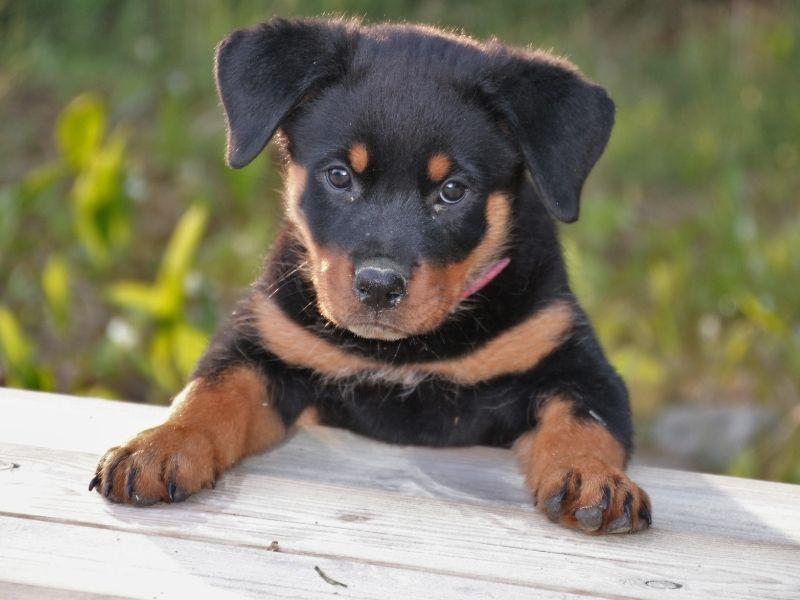When it comes to getting a new puppy, there are a lot of important factors to consider. One of the most important things to think about is what age you should get your puppy. There are a few different schools of thought when it comes to the perfect age to get a new puppy. Some people believe that puppies should be bought at a very young age, while others believe that puppies should be purchased later in life.
There are pros and cons to buying a puppy at each stage of their development. For example, younger puppies may need more time and attention from their owners since they are still developing both physically and mentally. However, older puppies may have already developed some bad habits that may be difficult to break. Ultimately, the decision of when to buy a puppy is up to the potential owner and should be based on what they are looking for in a new pet.

What is the Best Age to Get a Puppy?
There is no definitive answer to the question of what is the best age to get a puppy. Here are some things to consider when deciding on the perfect age for your new pet:
1) Young Puppies
Younger puppies are still developing both physically and mentally, and will need more time and attention from their owners. However, this can also be a benefit since it gives you the opportunity to teach your puppy good behavior habits from a young age.
2) Older Puppies
Older puppies may have already developed some bad habits, such as barking or jumping on people. However, this also means that they are more likely to be potty trained and will already know a few basic commands.
In the end, the decision of when to buy a puppy depends on what you are looking for in a new pet. Whether you prefer the energetic and playful nature of a younger puppy or the more mature demeanor of an older puppy, there are benefits to both options.
Should I Start to Train a Puppy Right Away?
Yes, it is important to start training a puppy as soon as possible. Training a puppy early on will help them develop good behavior habits and can make the process of housebreaking easier. There are many different training tips that you can use to get your puppy started on the right path. They include:
i) Consistency
One of the most important things to remember when training a puppy is to be consistent. This means using the same commands, praise, and corrections each time you work with your puppy. This will help them understand what you expect from them and make it easier for them to learn.
ii) Rewards
Another important part of training a puppy is to use positive reinforcement. This means giving your puppy rewards, such as praise or treats, when they do something correctly. This will help them associate good behavior with positive results and make it easier for them to learn new commands.
iii) Patience
One of the key things to remember when training a puppy is to be patient. Puppies are still learning and it will take time for them to understand what you expect from them. It is important to remain calm and consistent when working with your puppy to help them learn quickly and effectively.
iv) Practice
Finally, it is important to practice with your puppy regularly. This will help them get better at following commands and can make training less of a struggle for both you and your puppy. Whether you are working on potty training or teaching basic commands, consistent practice can be the key to success.

How Do I Toilet Train My Puppy?
Toilet training a puppy can be a challenge, but there are a few things that you can do to make the process easier.
First, it is important to choose a designated potty area for your puppy and take them there regularly. This will help them learn that this is where they should go to the bathroom. It is also important to take your puppy outside after meals, naps, and playtime to give them the opportunity to relieve themselves.
Second, it is important to be consistent with your commands when toilet training your puppy. Using the same words and phrases each time will help your puppy understand what you expect from them. It is also important to use positive reinforcement when they go to the bathroom in the designated potty area. This can include rewards, such as praise or treats.
Third, it is important to be patient when toilet training your puppy. It will take time for them to learn where they should go to the bathroom and how to tell you when they need to go outside. Be sure to remain calm and consistent throughout the process to help your puppy learn quickly and effectively.
See Also: Introducing a New Puppy to Your Adult Dog
And: Why Are So Many Dogs Mixed with Poodles?
How Far Should I Walk My Puppy?
How far you should walk your puppy depends on their age, breed, and energy level.
For example, a young puppy may only be able to handle a short walk around the block. An older puppy or adult dog may be able to handle a longer walk or even a run. It is important to start slow and increase the length and intensity of your puppy’s walks as they get older and more accustomed to exercise.
It is also important to consider your puppy’s breed when deciding how far to walk them. Some breeds, such as herding dogs, have a lot of energy and need a lot of exercise. Others, such as lap dogs, are naturally calmer and may not need as much exercise.
Ultimately, you should work with your puppy’s individual needs and preferences to determine how far you should walk them each day. But regardless of their age or breed, it is important to make sure that your puppy gets enough exercise to stay healthy and happy.
The age at which you should buy a puppy depends on a variety of factors, such as your lifestyle, home environment, and training goals. If you are considering buying a puppy, be sure to do your research to find the right breed for you and your family. Once you have chosen a breed, it is important to find a reputable breeder who can provide you with detailed information about the puppy’s health, training, and history.
In addition to choosing the right breed of puppy, it is important to be prepared for the responsibility and commitment that comes with owning a pet. This includes providing your puppy with proper nutrition, exercise, and socialization as they grow and develop. With the right preparation and commitment, you can help your puppy learn quickly and effectively, making training less of a struggle for both you and your new pet.
Featured image: Cavalier King Charles Spaniel Pups

